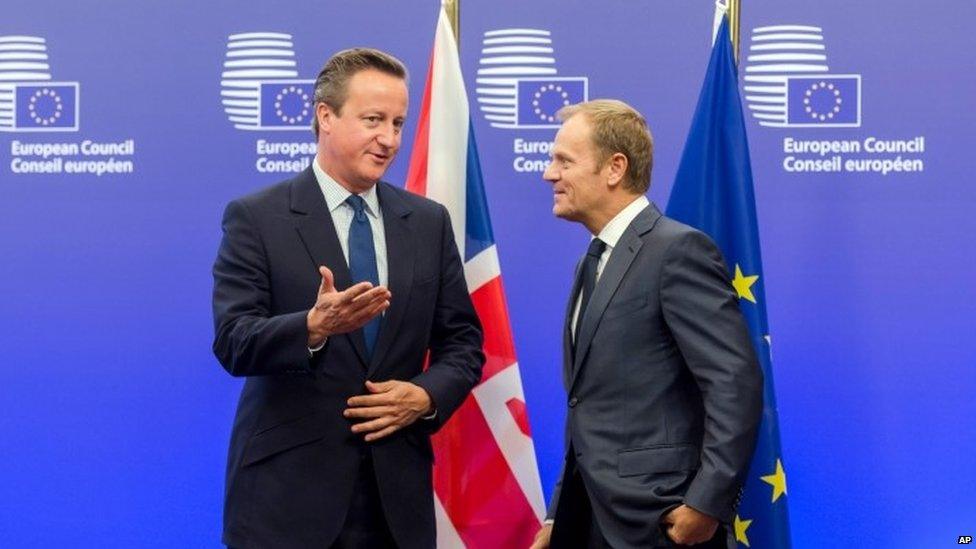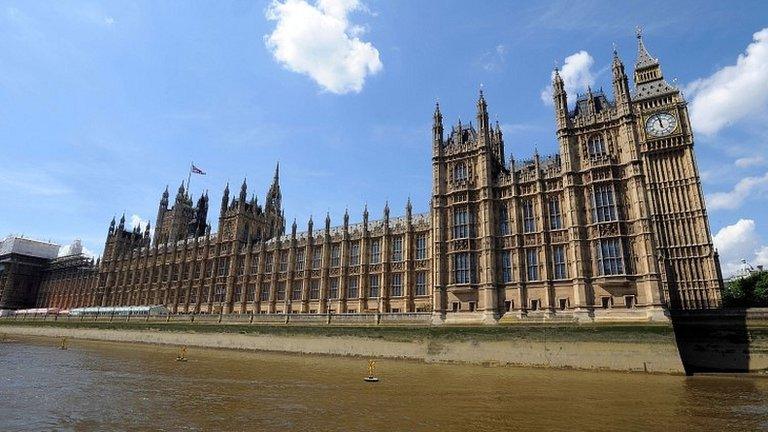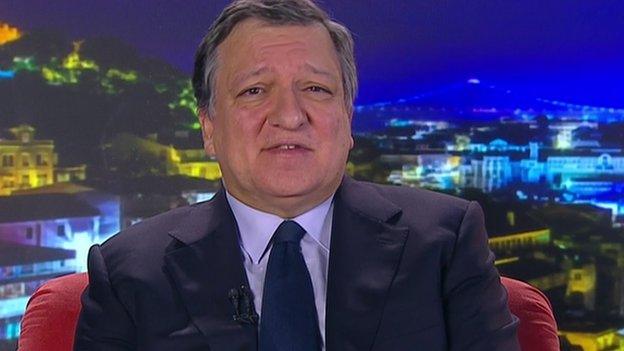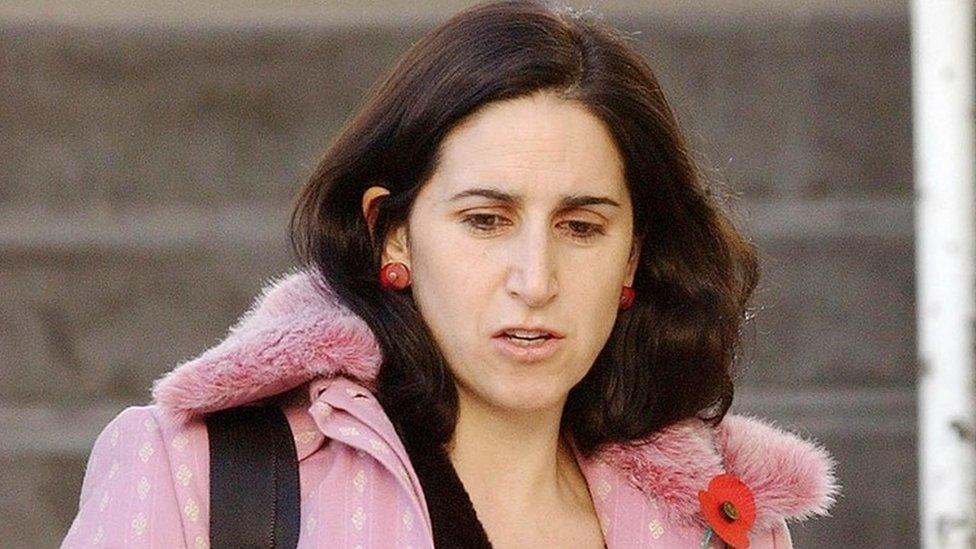EU referendum: Donald Tusk says talks over UK changes fragile
- Published

The two men conceived the draft renegotiation package that must be agreed by all 28 states
The man responsible for trying to broker a deal over the renegotiation of the UK's EU membership has said the process is "fragile".
Donald Tusk, the European Council president, said he had cancelled all his engagements to focus on talks with EU leaders and senior MEPs.
The UK hopes to win the backing of other EU countries for its draft reforms at a summit next week.
This could pave the way for an in-out referendum to be held this summer.
In recent weeks, EU officials have made positive noises about the prospect of an agreement at the Brussels meeting on 18 and 19 February.
This is seen as crucial to allow David Cameron to hold a referendum on the UK's membership of the EU on his preferred date at the end of June.
'Broad support'
But Mr Tusk has indicated the size of the task still ahead by clearing his diary to focus solely on high-level talks.
He tweeted:, external "Talks on UK in EU settlement a fragile political process. I cancelled all my obligations to meet EU leaders & EP to secure broad support."
Mr Cameron has been touring European capitals to try to address reservations about the package of changes he is seeking, which include limits on the payment of in-work benefits to new EU migrants, and new protections for countries outside the eurozone.
Denmark is among the countries to have said they back the proposals in full but Poland has said the welfare changes need further discussion and France is reported to be unhappy about anything that would give non-eurozone countries a veto over issues affecting the entire EU.
Draft conclusions of the summit, released on Tuesday, gave no indication of whether an agreement would be reached but stressed that, if it was, it would be legally-binding and compatible with existing EU treaties.
Foreign Secretary Philip Hammond has said he believes the government has the basis of a deal over its proposed emergency brake on in-work benefits.
This would see newly arrived EU migrants receive tax credits at a reduced rate during their first four years in the country as long as the UK could demonstrate its welfare system was under excessive strain.
'Something better'
Mr Hammond told MPs that "those countries who were expected to have been critical were impressed with the way the council has found a solution which addresses the UK's needs without trampling roughshod over their cherished principles.
"I think we've got something here which is workable," he added. "There is some refinement still to do and the discussion is still underway but I think we have got the basis of a workable deal in this section."
Campaigners calling for the UK to leave the EU have dismissed the negotiation process as a "sham" and say it will have little impact on the UK's sovereignty and ability to control its own borders.
Speaking at a rally in London, attended by Conservative, Labour, UKIP and DUP politicians, Conservative MEP Daniel Hannan said proponents of EU exit were offering "something better than the EU - an independent, prosperous and global Britain".
He urged 'Out' campaigners to extol the economic benefits of leaving the EU, which he said would lead to lower energy and food prices and a better deal for British farmers free of the Common Agricultural Policy.

Further reading on the UK's EU referendum
Guide: All you need to know about the referendum
EU renegotiation: Did Cameron get what he wanted?
Referendum timeline: What will happen when?
The view from Europe: What's in it for the others?

- Published10 February 2016

- Published10 February 2016

- Published10 February 2016
